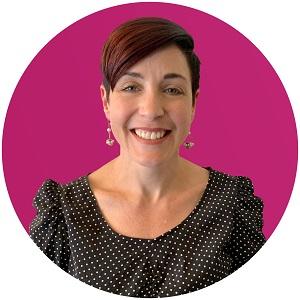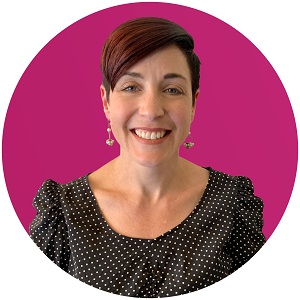
There is no denying that studying for the CPA Exam is an inherently stressful experience - stress and the CPA Exam can often go hand-in-hand. You can't completely eliminate that pre-exam anxiety, and it probably wouldn’t be a good idea to do so because stress can be a motivator.
CPA candidates spend 350 to 450 hours studying for the exam. In the end, you don’t want those hours to be the worst experience of your life. Fortunately, with knowledge of the exam's structure and requirements, careful planning and some support from Becker's resources, you can learn how to manage CPA Exam stress and make the best use of the time you have available to study.
This article will share top CPA Exam stress causers and how to ease stress from your CPA Exam study time.
CPA Exam stress
There are several factors that can cause the most CPA Exam anxiety.
CPA Exam eligibility requirements
The first major factor that may cause CPA Exam stress is determining whether you qualify to take the exam.
It doesn't help that the CPA Exam is offered in 54 jurisdictions and that every jurisdiction has its own rules regarding exam and licensure eligibility. Seriously?! The good news is that you don’t have to figure this out on your own. There are resources to help you find the eligibility requirements for the state or territory in which you plan to license. For example, we've created a complete guide to CPA requirements, with information on each jurisdiction. We have done all the work for you – one CPA Exam anxiety eliminated!
All you need to do is determine where you plan to license, look up their exam eligibility requirements and determine whether you meet them. If you don’t meet the requirements the good news is that you don’t need to worry about the CPA Exam, yet. If you do meet the requirements, you move onto the next step in the process.
CPA Exam application process
The next major factor that may cause CPA Exam stress is applying for the exam. This may cause stress because of the front-end paperwork, exam cost, and time you will have to wait before you receive your Notice to Schedule (NTS).
Your best resource for the application process is the National Association of State Boards of Accountancy (NASBA) website. NASBA administers the CPA Exam in partnership with the AICPA. The NASBA website provides links to the exam application for every jurisdiction. Another CPA Exam anxiety eliminated! You don’t have to search for the right application, NASBA will help you find it.
Be prepared to spend some time filling out the application and providing supporting documentation, such as transcripts. Be prepared to pay for the CPA Exam when you register. The cost varies from jurisdiction to jurisdiction but typically comes in at about $1000 for all four parts. This causes the CPA stress level to shoot up for many candidates, but fortunately, some employers will pay for exam registration fees. Don’t be afraid to ask your company if they will relieve some of your financial stress by helping you cover this cost.
Finally, be prepared to wait a few weeks for your application to be approved. Waiting is stressful, but the approval process does take time. The best way to prevent CPA Exam stress related to the approval process is to submit your application 6-8 weeks before you plan to take your first exam. This is especially important if you want to take your exam at a busy time, such as over the weekend or at the end of a testing window. You are more likely to get your desired exam date and time if you schedule early, and you cannot schedule your exam until your application is approved and you have your NTS.
Studying for the CPA Exam
Once you have eligibility and the application process out of the way, you enter the most stressful part of the CPA Exam preparation process – studying for the exam!
This is where careful planning becomes very important. Although you might know someone, who knows someone, who studied for one week for the Financial Exam and got a 99, the reality is that most of us spend a significant amount of time studying for the CPA Exam. We recommend that you spend approximately 150 hours studying for the Financial section, 120 hours studying for the Regulation section, 90 hours studying for the Auditing section and 90 hours studying for the Business section. Here are tips for stress while studying for the CPA Exam.
Minimize your CPA Exam stress by setting up a realistic study plan using the Study Planner in the Becker course. Your study plan should be based on your personal circumstances. If you work full-time, you may only be able to study 10-20 hours each week, with most of your study time on Saturdays and Sundays. If this is your situation, don’t give yourself only four weeks to prepare for the Financial section because you won’t have enough time to get through all the study materials. If you try to cram 10-12 weeks of studying into four weeks, you are going to be extremely stressed and are setting yourself up for failure.
Procrastinating on your study plan
Another major cause of CPA Exam stress while studying is procrastination.
If you use the Study Planner and determine that you need 10 weeks to study for your next exam, that exam is going to seem far from when you begin studying. Early in the process, it is easy to replace the hours that you planned to study with time for family or friends, or your favorite show on Netflix, or football, or hockey, or shopping, or any of the million other things that are more fun than studying for the exam. Although you might justify this as stress relief, your CPA Exam anxiety will reach new heights if you are two weeks from exam day and only halfway through your Becker course materials because you didn’t study as you should have during the previous eight weeks. Sticking to your study plan isn’t always fun and does require some sacrifices. But it will save you from the stress of knowing on exam day that you aren’t properly prepared.
Of course, there is nothing wrong with taking breaks while studying. Just don’t take those breaks during your designated study time. Your study schedule should include time to step away from both work and studying to do things that you enjoy.
In many ways, studying for the exam is like preparing for and then running a marathon. Your body and mind will get tired. To combat this mental and physical exhaustion, you need to use common sense and take care of yourself. In addition to taking study breaks, you need to make sure that you get enough sleep (7-9 hours per night), eat well and take time to exercise regularly. You may be tempted to sacrifice some of your healthy habits, like exercise or sleep, but your study time will be more effective if you are well-rested. Also, exercise is a proven form of effective stress management.
Once you have finished your studying, you are ready to take the CPA Exam. You might not feel ready (no one ever does), but if you have completed your Becker CPA Exam Review effectively, you're likely Exam Day ReadySM and it's time to take the plunge. You may be tempted to reschedule your exam so that you have one more day, or one more week, or one more month to study, but procrastination is the number one reason why people don’t pass the CPA Exam. You are 100% guaranteed not to pass the exam if you don’t take the exam – so just do it!
CPA Exam stress advice
The days that you take each of the four parts of the CPA Exam will be your most stressful days in the whole exam process. But there are exam stress management techniques you can employ to minimize your stress on exam day.
1. Know how to get to your testing center.
Make sure that you know the exact location of your Prometric testing center and how long it will take you to get there. If you have never been to your testing center before, it is a good idea to do a practice drive before your exam day. Make sure to do your practice drive around the same time as your exam, so that you can see how traffic affects the commute.
2. Arrive early.
You must arrive at Prometric at least 30 minutes before your exam start time in order to check in. If you don’t arrive on time, you may be denied permission to test and you will not get a refund. Plan ahead and don’t get stuck sitting in unexpected traffic.
3. Bring the correct documents.
Prometric will expect you to provide your current Notice to Schedule (NTS) and two forms of identification when you arrive to take your exam. At least one form of identification must have a current photograph, and both forms of identification need to show the same name that is on your NTS, bear your signature and must not be expired. If you mistakenly bring an old NTS or you don’t bring the required forms of identification, you will not be allowed to sit for your exam and you will not get a refund.
4. Be prepared to be screened.
The AICPA and Prometric are very serious about exam security. On exam day, they will take a digital photograph of your face and you will be scanned using a hand-held metal detector wand with your pockets turned out. Prometric also uses a bio-metric fingerprint-capturing system and you will be required to provide a fingerprint when you enter and before and after any breaks. Breaks are only allowed between exam testlets. If you leave the testing room without exiting a testlet and selecting the break option, you will not be allowed to return to your exam.
5. Be prepared for the CPA Exam functionality and testing conditions.
The Becker course provides you with two Final Exams in each section of the course that replicate the CPA Exam experience, including the introductory screens and the break options. The AICPA also provides Sample Exams on its website. Review the Sample Exams and take Becker’s Final Exams under exam circumstances before your actual exam day so that you are familiar with the functionality.
It is important to understand that the CPA Exam is a progressive exam that is broken into testlets. You must take the testlets sequentially and you cannot go back to a testlet once it has been closed. Also, be prepared to use the on-screen calculator. You cannot bring your own calculator to the CPA Exam. Your only calculator is the one built into the testing software, which is the same calculator that you have available in the Becker software. Although you may prefer to do your Becker homework using your own calculator, doing so won’t help you on exam day. The CPA Exam calculator has limited functionality and you want to be familiar for what it can and cannot do before you take the exam. Being prepared for this functionality will mitigate some of your exam day stress.
If you're exceptionally anxious about the exam day experience, Becker has a resource with mistakes to avoid on the day of the exam.
Once you have taken the exam, you move onto the last CPA Exam stressor – waiting for your score.
Many candidates leave the exam feeling that they did not pass. But you don’t know whether you have passed until you receive your score. Don’t waste time after exam day second-guessing your exam performance. Under normal testing conditions, the AICPA releases scores relatively quickly.
At Becker we talk to many candidates who are distraught after exam day because they are “sure” they failed, but the vast majority of these candidates later tell us that they did, in fact, pass their exam. Here's a boost of confidence - in 2020, Becker Exam Day ReadySM students reported passing 94% of the CPA Exam sections they attempted. If you effectively prepared using our review course, you can join the high percentage of students that pass all four sections of the exam.
During the week or weeks that you are waiting for your score, take some time off and get back to living your life. If you aren’t done taking all four parts of the exam, you will need to start studying for your next exam. But before you do that, take at least a few days to enjoy yourself. Let your stress go for a little while and figure out how to stop worrying about exam results.
Be prepared to celebrate when you receive your score and find out you passed. We know that you can do it and we know that you can do it with less stress if you are prepared! Good luck!
Haven't started your exam journey yet? Prepare to pass the CPA Exam with less stress through Becker.









